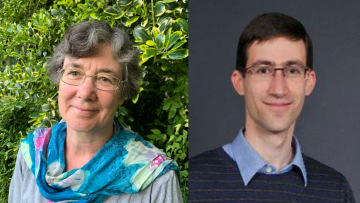15:00
Residual finiteness and actions on trees
Abstract
One of the more common ways to study a residually finite group (or its profinite completion) is via breaking it down into a graph of groups in some way. The descriptions of this theory generally found in the literature are highly algebraic and difficult to digest. I will present alternative, more geometric, definitions and perspectives on these theories based on properties of virtually free groups and their profinite completions.


